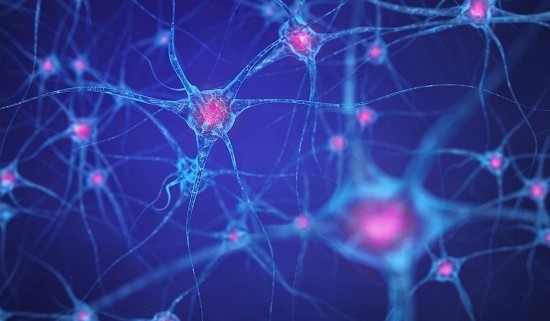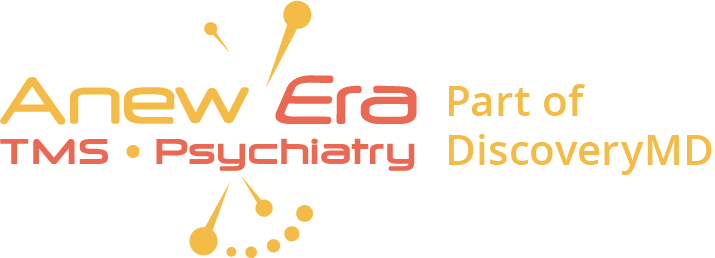How Long Do The Effects of TMS Treatment Last
Everyone loves a good return on investment, usually referred to as ROI, when making financial decisions. This process of due diligence prior to making an important investment usually involves some research to help evaluate whether it is a worthy expenditure that will in some way improve one’s quality of life.
When it comes to making important healthcare decisions, the same thought process is involved. We like to know in advance how effective a medication or procedure is, whether there are any significant health risks involved, and how long we can expect to experience the positive results from the treatment. This is a practical and commendable approach as we process pros and cons and determine ROI.
Depression is a complex mental health disorder that is very individualized in each patient. Physiology, genetics, family history, life events, and other factors can shape the way any particular person might experience major depressive disorder. The multiple factors alone help to explain why about half of depressed patients do not respond to traditional therapies. When an individual who is medication-resistant, where antidepressant drug therapy was ineffective, contemplates an alternative treatment such as TMS therapy, it is only natural that they will want to know how long do the effects of TMS treatment last.
Transcranial magnetic stimulation (TMS) is an exciting new treatment entry in the mental health care field for individuals who were medication-resistant, FDA cleared in 2008 for just this purpose. TMS provides much sought after relief from persistent symptoms of major depressive disorder (MDD), offering thousands new hope for an improved quality of life.
What is TMS?
About a decade ago a new tool in the depression toolbox was cleared by the FDA for treating individuals who had heretofore not been responsive to the usual treatment route of antidepressant drug therapy. Over the intervening years, study after study has continued to demonstrate that TMS is a safe and effective alternative therapy, and the word is getting around. TMS therapy offers an encouraging option for medication-resistant patients with MDD.
TMS is in a category of therapeutic interventions called neuro-stimulation, or brain cell stimulation. The treatment is based on the use of magnetic pulses that are directed to a specific area in the brain where neuronic activity has become sluggish or dormant. This is a common trait among depressed patients, and can be actually seen in brain imaging results. TMS therapy is noninvasive, which means there is no surgical procedure that requires sedation. The patient is fully alert throughout the sessions and can immediately return to their regular activities.
How Does TMS Help When Antidepressants Didn’t?
Too many people have unsuccessfully attempted to turn their depression around with antidepressants, experiencing no real relief and/or intolerable side effects from these medications. Antidepressant side effects can include:
- Sexual dysfunction
- Weight gain
- Nausea
- Headache
- Irritability
- Blurred vision
- Dry mouth
- Sleep disturbance
- Fatigue
According to a recent study attempting to answer the query as to why antidepressants only help about 50% of depressed patients, new data points to a possible genetic component that involves the body’s ability to respond to and manage stress. Although this data is nascent, as the genetic variants are studied more can be learned about why antidepressants don’t work uniformly in all depressed patients.
TMS therapy is not systemic, meaning it is not a drug that is ingested and permeates the body’s tissues, or bloodstream. Instead, TMS relies on simply stimulating the underactive brain cells in the left prefrontal cortex where mood regulation takes place, eventually re-setting or normalizing brain chemistry.
How Long Do the Effects of TMS Treatment Last?
When wondering how long do the effects of TMS treatment last, it is important to know that there is no one-size-fits-all resolution for depression. Due to the various factors mentioned above that influence major depression, each patient will have his or her own unique response to TMS therapy. In many cases a 4-6 week treatment regimen will provide remission that lasts for about six months or longer. Occasional TMS maintenance sessions are sometimes needed to prolong remission. Some patients may be placed on a post-TMS schedule of one session per month for a specified period of time.
Long-term study results were presented in 2013, where 257 individuals who participated in a TMS clinical study were observed for a year with periodic checkpoints. At the one-year mark 69% of the patients reported improvement of symptoms and 45% reported complete remission. Mark George, M.D., who had published prior TMS study results, stated, “This is a very important and exciting study. Several prior studies have shown that prefrontal rTMS works to treat depression acutely. Until this study, we have had only limited information about how well these patients do a year after completing a course of TMS. Long-term data following remission produced by medications or electroconvulsive therapy [ECT] in these treatment-resistant patients have been disappointing, with only about 13% being still remitted a year later. For example, over half of patients who remit with ECT are ill again 6 months later. Thus, having 45% in remission a full year later is very, very encouraging.”
Is TMS Therapy Ever Prescribed With Antidepressants?
For patients who can tolerate antidepressants, there is evidence that these drugs can augment TMS treatment results or vice versa. There is reason to believe that using these two treatment protocols together can optimize results, and eventually the antidepressant therapy can be tapered and eliminated as symptoms normalize once the chemical imbalance in the brain is normalized. Utilizing antidepressants with the TMS therapy can also impact how long do the effects of TMS treatment last.
Anew Era TMS & Psychiatry Provides Expert TMS Therapeutic Services in Orange County
Anew Era TMS & Psychiatry is a leader in providing effective TMS treatment for people with medication-resistant major depression. The clinical team at Anew Era TMS & Psychiatry creates a customized TMS plan once the individual has been identified as a good candidate for the treatment. In most cases, a 4-6 week plan with five 40-minute sessions per week provides optimal results. Patients typically experience incremental improvements in concentration, focus, energy, sleep quality, and mood as the treatments proceed. For more information about TMS and to learn if you are a candidate for this promising treatment for depression, please contact our friendly staff at (888) 503-1549.





